10 Things You Should Know About Copyright Infographic
- Subject:
- Cross-Curricular
- Material Type:
- Visual Media
- Provider:
- Virginia Internet Safety Advisory Council
- Provider Set:
- 2024
- Date Added:
- 03/15/2024
10 Things You Should Know About Copyright Infographic
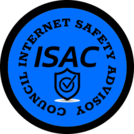
A FREE online platform created by AT&T in collaboration with Warner Bros. to help connect K-12 students to a new world of digital learning through stories that spark curiosity and content that entertains and teaches. Designed by education experts, The Achievery offers 7 subject-categories and over 500 videos, including clips from some of the most popular movies and shows, all paired with learning activities that can be accessed from everywhere they are - at home, in the classroom, and in their communities. Whether you are an educator looking for innovative ways to teach and plan your lessons, a parent or caregiver interested in finding additional resources for your children, or a motivated student in search of new challenges and opportunities to improve, you can find the best experience for you.
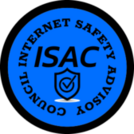
Provides a facilitator's guide, fact sheets, handouts, scenarios, and other resources for educators to help middle school and high school youth consider digital technology use, online safety, and mental and emotional health.
"This is an assembly-style personal safety
presentation for children in grades 3|4|5
featuring the NetSmartzKids characters.
Kids will learn about the four NetSmartz
rules with a live presenter who engages
them through discussion, quizzes and
animated videos."
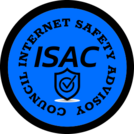
The Digital Citizenship+ (Plus) Resource Platform (DCPR) (previously called the Digital Literacy Resource Platform (DLRP)) is an evolving collection of learning experiences, visualizations, and other educational resources (collectively referred to as “tools”) designed and maintained by the Youth and Media team at the Berkman Klein Center for Internet & Society at Harvard University. You can you use the DCRP to learn about different areas of youth’s (ages 11-18) digitally connected life, including:
(1) Artificial Intelligence (AI), (2) Civic and Political Engagement, (3) Computational Thinking, (4) Content Production, (5) Context, (6) Data, (7) Digital Access, (8) Digital Economy, (9) Digital (Literacy), (10) Identity Exploration and Formation, (11) Information Quality, (12) Law, (13) Media (Literacy), (14) Positive/Respectful Behavior, (15) Privacy and Reputation, (16) Safety and Well-being, and (17) Security.
These tools aim to empower you with knowledge about connected learning environments and other parts of the digital world so you can make the choices that are right for you. If you are responsible for educating others, these tools can also support you as you teach, parent, or fill other valuable guidance roles. Our goal is to promote the co-creation of trustworthy and supportive digital spaces for all of us.
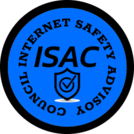
Community leaders educate those around them about a variety of issues and topics, including human trafficking. They may be a trusted adult for a young person, a moral authority in a congregation, or have the ability to empower their peers to learn to recognize and report human trafficking. Regardless of their specific role, their leadership positions them to educate and influence others. Below are several resources that can be used to start conversations and raise awareness of trafficking within communities across the country.
Free C&C resources include in-class lesson plans, plug-n-play slides, learning videos, visual aids, and a professional development course for teachers. They were developed on a nonprofit basis with input from independent educators, academic copyright experts, and online civil liberties advocates.
These materials aim to provide accessible and practical information about copyright – its protections, its limitations, and its role in encouraging creativity. Rather than just emphasizing what copyright prohibits, the goal here is to offer useful and positive information about what copyright allows and how students can successfully navigate and rely on copyright in their own roles as creators.
Checkology is a free e-learning platform with engaging, authoritative lessons on subjects like news media bias, misinformation, conspiratorial thinking and more.
Learners develop the ability to identify credible information, seek out reliable sources and apply critical thinking skills to separate fact-based content from falsehoods.
The Internet is open, so everything that happens on it can be seen unless it's protected. In modern countries, people are more worried about getting hacked than about any other crime. Why? Because every computer or phone on the Internet is regularly being tested for vulnerabilities by criminals, terrorists, or even state actors. If you're not careful, somebody could hack your device or accounts, and even steal your identity or your money.
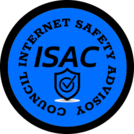
Use digital citizenship lesson plans to address timely topics and prepare students to take ownership of their digital lives. Browse lessons by grade and topic below, or see an overview of the curriculum.
We've got more new lessons! Explore all lesson plans or check our lesson collections!
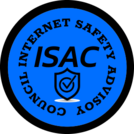
Use digital citizenship lesson plans to address timely topics and prepare students to take ownership of their digital lives. Browse lessons by grade and topic below, or see an overview of the curriculum.
We've got more new lessons! Explore all lesson plans or check our lesson collections!
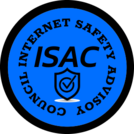
Use digital citizenship lesson plans to address timely topics and prepare students to take ownership of their digital lives. Browse lessons by grade and topic below, or see an overview of the curriculum.
We've got more new lessons! Explore all lesson plans or check our lesson collections!
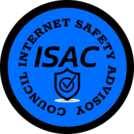
Use digital citizenship lesson plans to address timely topics and prepare students to take ownership of their digital lives. Browse lessons by grade and topic below, or see an overview of the curriculum.
Learn about what copyright does—and does not—cover in our Circulars. These guides provide detailed, up-to-date information to explain copyright to the public.
The Learning Engine series of videos introduces copyright concepts and the Copyright Office to those who may be new to the topic or who want to learn more. More videos will be added in the future here and to our YouTube channel. Subscribe to the channel to be notified when new videos are available.
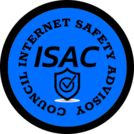
Making a report of child exploitation is secure and easy. The form can be completed in just a few minutes, and you decide if you want to share your contact information. In fact, many of the fields are optional so what information you provide, is up to you.
This is a resource that describes the 5 Ws of Cyberbullying for students in grades K-8.
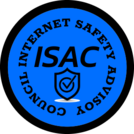
This website serves as a clearinghouse of information concerning the ways adolescents use and misuse technology. It is intended to be a resource for parents, educators, mental health professionals, law enforcement officers, counselors, and others who work with youth (as well as for youth themselves!). Here you will find facts, figures, and detailed stories from those who have been directly impacted by online aggression. In addition, the site includes numerous resources to help you prevent and respond to cyberbullying incidents. All of the information on this site is informed by over fifteen years of research.
Guide to follow Video on Photo Fate